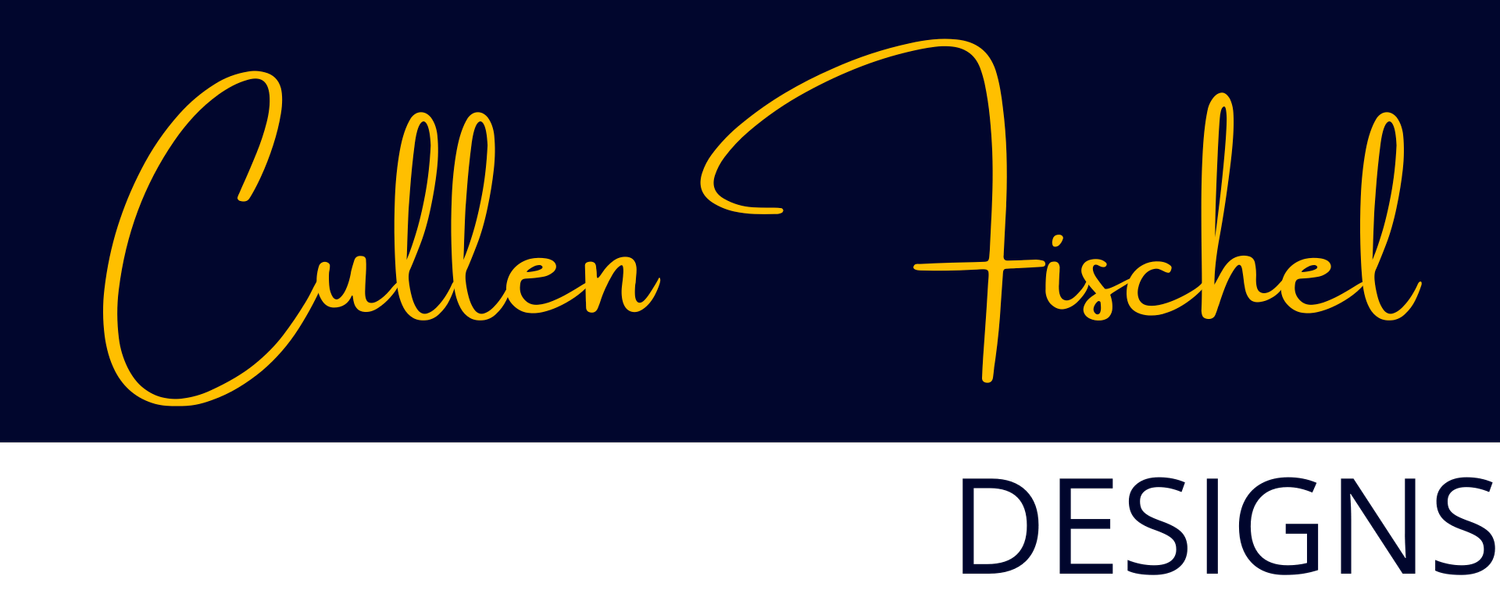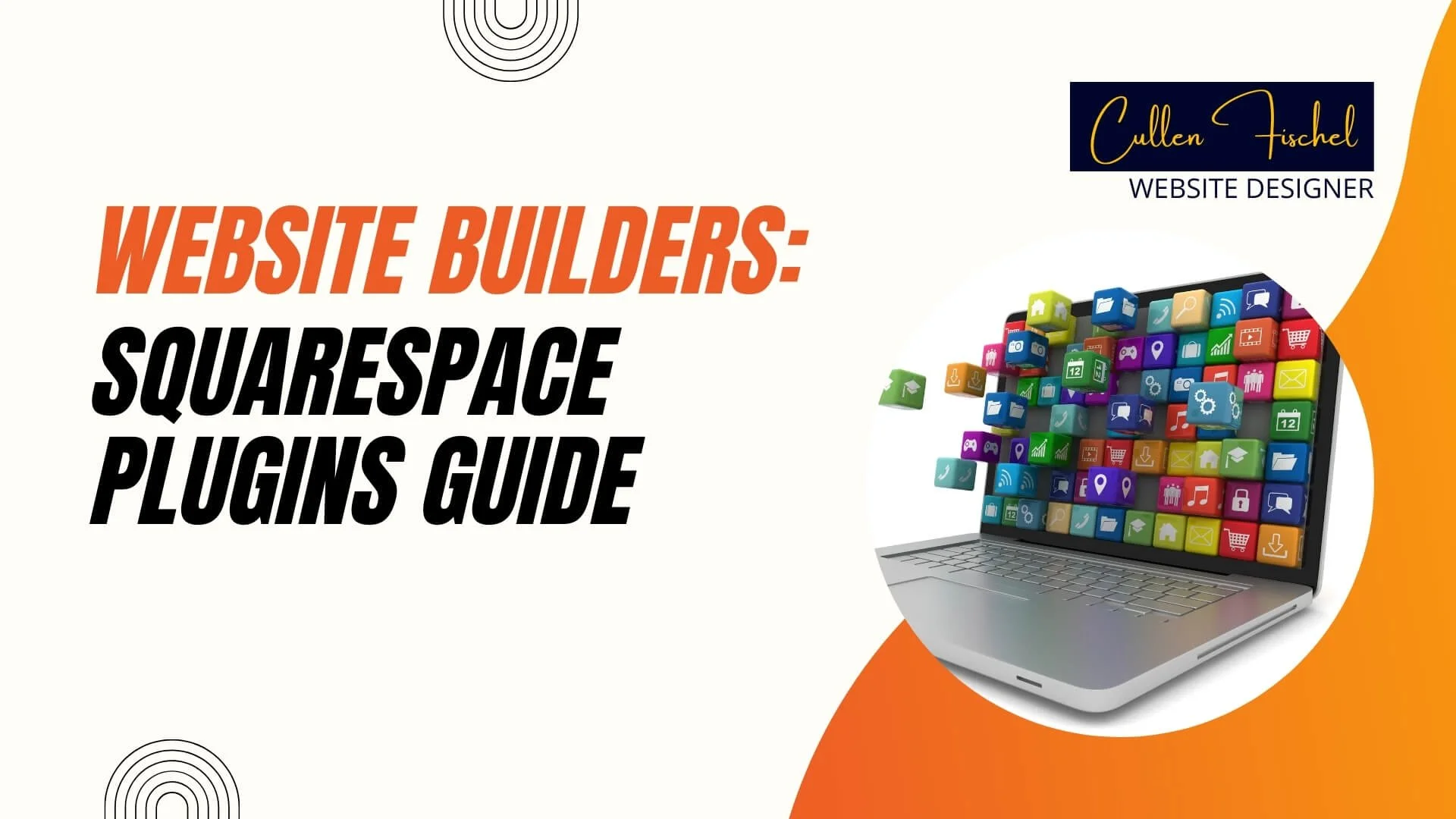DIY vs. Hiring a Website Designer: When to Choose Each for Your Business Website
DIY vs. Hiring a Website Designer: When to Choose Each for Your Business Website
Get a pro website, even on a budget! Expert tips for DIY, hybrid, and full web design solutions.
Cullen Fischel | MAY 17, 2024 | 5 min. read
5 minute read
By Cullen Fischel, website designer
Having a website isn't a luxury – it's a necessity. It's your online storefront, your digital brochure, and a crucial element of any successful marketing strategy.
But when it comes to building your website, you have two main options: tackling it yourself with a DIY website builder or partnering with a professional web designer like myself, Cullen Fischel.
Key Takeaways
DIY website builders offer affordability and ease of use, but can limit design customization and SEO potential.
Hiring a professional web designer delivers a unique, high-performing website tailored to your business goals, but comes with a higher cost.
The best choice depends on your budget, website complexity, available time, and design skills.
A well-designed website is a foundational element for successful digital marketing strategies.
DIY Website Builders: A Budget-Friendly Starting Point
DIY website builders are like pre-fab sheds – affordable, easy to assemble, and perfect for basic needs. Platforms like Wix and Squarespace offer user-friendly interfaces with drag-and-drop functionality, making them accessible for anyone, regardless of coding experience. Here are some of the key benefits:
Cost-Effective: DIY website builders are significantly cheaper than hiring a professional. Many offer free plans or low-cost monthly subscriptions.
Fast Setup: Pre-designed templates streamline the website building process, allowing you to get your website up and running quickly.
Easy to Use: No coding knowledge is required. These platforms offer intuitive interfaces that guide you through the website creation process.
However, DIY website builders come with limitations:
Limited Design Flexibility: While templates offer a starting point, customizing them to create a truly unique brand identity can be challenging. Your website might end up looking similar to others built with the same platform.
SEO Challenges: Search Engine Optimization (SEO) is crucial for getting your website found online. DIY builders may offer basic SEO tools, but they might not provide the same level of optimization a professional web designer can achieve.
Limited Functionality: For websites requiring complex features, like e-commerce functionality or custom contact forms, DIY builders might not have the capabilities you need.
Hiring a Professional Web Designer: Investing in Quality and Performance
Think of a professional web designer like an architect – they create a custom website from the ground up, ensuring it meets your specific needs and reflects your brand perfectly. Here's what you gain by partnering with a web designer:
Unique Website Design: A professional web designer, like myself, Cullen Fischel, will craft a website that stands out from the crowd, aligned with your brand identity and target audience.
Enhanced Functionality: Need an e-commerce store, a membership portal, or a booking system? A web designer can integrate these features seamlessly.
SEO Expertise: I understand how to build websites that rank well in search engine results, driving organic traffic to your website. This is essential for attracting new customers.
Time Savings: Building a website yourself can be time-consuming. A web designer takes that burden off your shoulders, freeing you to focus on running your business.
Of course, there's a trade-off:
Cost: Hiring a professional web designer comes with a higher price tag compared to DIY builders. However, the return on investment can be significant, especially when you consider the long-term benefits of a high-performing website.
Making the Right Choice for Your Business
So, how do you decide which path is right for you? Here are some key factors to consider:
Budget: Be realistic about your financial resources.
Time: Can you spare the time to learn a DIY platform and build your website?
Technical Skills: Are you comfortable with basic design principles and technology?
Website Complexity: Do you need a simple website or one with advanced features and functionalities?
Finding a Middle Ground: The Hybrid Approach
Don't feel limited to just one option. Consider a hybrid approach! Utilize a DIY website builder to get started and then outsource specific tasks to a web designer like myself, Cullen Fischel.
For instance, I can help you customize your website template for a more unique look, set up complex features, or optimize your website for search engines. This allows you to leverage the cost-effectiveness of DIY builders while getting the professional touch where it matters most.
Cullen Fischel's Tips for Success
Clearly define your website's goals. Before building anything, ask yourself: What do I want my website to do for my business? Common goals include:
Generate Leads: Capture contact information of potential clients.
Sell Products or Services: Facilitate online transactions.
Provide Information: Educate visitors about your business and offerings.
Build Brand Awareness: Establish your company's identity.
Prioritize user experience (UX). A great website isn't just pretty, it's functional. Here's how to ensure excellent UX:
Intuitive Navigation: Make it clear where visitors can find what they're looking for. Use a simple menu structure and clear labels.
Fast Loading Speed: No one likes a slow website! Optimize your images and code to ensure pages load quickly.
Visual Hierarchy: Guide visitors through your content with clear headings, font sizes, and use of whitespace.
Mobile optimization is key. More people than ever are browsing on smartphones and tablets. Ensure your website adapts seamlessly to various screen sizes. This involves:
Responsive Design: The layout adjusts automatically based on the device.
Touch-Friendly Elements: Buttons and links should be easy to tap with a finger.
Mobile-First Mindset: Design for the small screen first, then scale up for desktops.
Don't skimp on high-quality content. Words and images are the heart of your website. Invest in:
Compelling Copywriting: Clear, concise, and speaks to your target audience's needs.
Professional Photography: Showcases your products or services in their best light.
Engaging Videos: Can explain concepts or demonstrate products in action.
Continual updates and maintenance are essential. Your website isn't a "set it and forget it" project. Regular maintenance ensures:
Security: Protect your site (and visitors' data) from hacking attempts.
Freshness: Add new content to keep visitors returning and boost search engine rankings.
Compatibility: Keep up with browser updates and fix broken elements.
Ask a Website Designer
When should I definitely consider hiring a web designer?
While DIY website builders are accessible, there are times when hiring a professional web designer gives you a substantial advantage. Here are those scenarios:
Complex Requirements: If you need custom features, intricate integrations with other software, or a website structure that's far from the traditional template, an expert is best-suited to tackle those complexities.
Uniqueness: Standing out in a crowded digital landscape is key. A professional designer can create a website that reflects your brand's personality and avoids looking generic.
Lack of Time or Expertise: Building a great website takes dedicated time and technical skill. If you are short on either of those, a designer allows you to focus on running your business while they handle the technical aspects.
Are DIY website builders good for SEO?
DIY website builders often include basic SEO features. While they've become better in this area over time, they may not offer the same granular control over optimization as a custom-designed website. A web design professional with SEO expertise can strategically craft your site for optimal search engine performance.
What if my budget is tight, but I want a professional-looking website?
If your budget is limited, don't despair! A hybrid approach can give you a professional edge without the full cost of hiring a designer for the entire project. Here's how:
Use a DIY Builder: Choose a builder with strong visual tools. Focus on a clean design and structure.
Outsource Key Elements Consider hiring a designer like Cullen Fischel for specific tasks like logo design, optimizing your most important pages, or consulting on the overall site structure.




